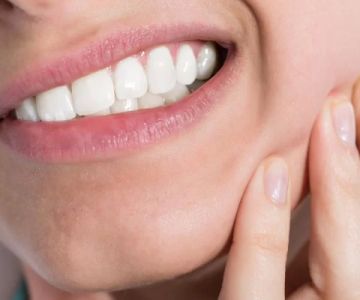The Importance of Regular Flossing in Preventing Tooth Decay
Taking care of your teeth is essential for maintaining overall health, and one of the most effective habits to adopt is regular flossing. Many people focus on brushing their teeth, but flossing plays a critical role in removing food particles and plaque buildup between the teeth, where toothbrushes often can't reach. In this article, we will explore how regular flossing can help prevent tooth decay and improve overall oral health.
1. Flossing Removes Plaque and Food Particles
Toothbrushes are essential for cleaning the surfaces of your teeth, but they can't always reach between your teeth. This is where flossing becomes crucial. Dental floss is a thin, flexible piece of string that can slip between your teeth and remove food particles and plaque that have accumulated during the day. Plaque is a sticky film of bacteria that forms on your teeth, and if it's not removed regularly, it can lead to cavities and gum disease. Flossing at least once a day helps prevent plaque buildup and reduces the risk of tooth decay.
2. The Link Between Flossing and Gum Health
In addition to preventing tooth decay, flossing is essential for maintaining healthy gums. When plaque and food particles are left between the teeth, they can irritate the gums, causing inflammation, redness, and bleeding—a condition known as gingivitis. If left untreated, gingivitis can develop into more severe gum disease, leading to tooth loss. By flossing regularly, you remove the plaque from between your teeth, which helps to prevent gum disease and keeps your gums healthy.
3. How Flossing Affects Your Breath
Bad breath, or halitosis, is a common problem caused by food particles and bacteria trapped between the teeth. When food gets stuck in these areas, bacteria start to break it down, releasing foul-smelling gases that contribute to bad breath. Flossing regularly removes these particles and reduces the bacterial buildup, leading to fresher breath. If you're concerned about bad breath, adding flossing to your daily routine can significantly improve your oral hygiene and help keep your breath fresh.
4. Flossing Reduces the Risk of Cavities
Cavities form when bacteria in plaque produce acids that erode the tooth enamel. If plaque isn't removed, it can build up and cause the enamel to break down, leading to cavities. The areas between the teeth are especially vulnerable to plaque buildup since toothbrushes cannot effectively clean these spaces. Regular flossing helps remove the plaque from between the teeth, reducing the risk of cavities and ensuring that your enamel stays healthy. Consistent flossing, along with brushing, is your best defense against tooth decay.
5. The Role of Flossing in Overall Oral Hygiene
Oral hygiene is about more than just brushing your teeth. It's a combination of proper techniques, habits, and products that work together to keep your mouth healthy. Flossing is an integral part of this routine because it targets areas that brushing can't reach. While brushing helps clean the surfaces of your teeth, flossing gets into the small crevices between them. Without flossing, you leave behind plaque and bacteria that can lead to tooth decay and gum disease. Flossing, along with regular brushing and routine dental checkups, is the key to maintaining optimal oral health.
6. How to Floss Effectively
While most people know that they should floss, many are unsure of how to do it properly. To floss effectively, break off about 18 inches of dental floss. Gently slide the floss between your teeth, curving it around each tooth in a C-shape. Move the floss up and down along the sides of each tooth, making sure to clean below the gumline. Be gentle to avoid damaging your gums. Flossing should be done once a day—preferably before bedtime to remove food particles from the day. With practice, flossing will become a quick and easy part of your daily routine.
Conclusion: Make Flossing a Daily Habit for Better Oral Health
Incorporating regular flossing into your daily oral care routine is one of the simplest yet most effective ways to prevent tooth decay and maintain overall oral health. Flossing helps to remove plaque, prevent gum disease, reduce the risk of cavities, and keep your breath fresh. Don't skip this essential step in your dental hygiene routine. If you're unsure of how to floss correctly, ask your dentist or dental hygienist for advice. Your teeth and gums will thank you in the long run. And for those seeking professional dental care, you can always reach out to Dentistry Toothtruth for expert advice and assistance.







 Westgate Dental Arts
Westgate Dental Arts Coventry Family Dental
Coventry Family Dental Familia Dental
Familia Dental Dr. Daniel S. Fife, DDS
Dr. Daniel S. Fife, DDS Dentistry At Suburban Square: Michael I. Wollock, DMD
Dentistry At Suburban Square: Michael I. Wollock, DMD Comfort Care Dental
Comfort Care Dental The Importance of Oral Health Education During Pregnancy for a Healthy Pregnancy
The Importance of Oral Health Education During Pregnancy for a Healthy Pregnancy Why Skipping Dental Checkups Can Lead to Bigger Oral Health Problems
Why Skipping Dental Checkups Can Lead to Bigger Oral Health Problems Advantages of Porcelain Dental Restorations
Advantages of Porcelain Dental Restorations Best Tips for Brushing Your Teeth Properly for Healthy Gums: Essential Techniques for Oral Health
Best Tips for Brushing Your Teeth Properly for Healthy Gums: Essential Techniques for Oral Health How Can Diabetes Cause Tooth and Gum Problems? Preventing and Managing Oral Health Issues
How Can Diabetes Cause Tooth and Gum Problems? Preventing and Managing Oral Health Issues Healthy Habits for Promoting Good Oral Health and Hygiene: Tips for a Healthy Smile
Healthy Habits for Promoting Good Oral Health and Hygiene: Tips for a Healthy Smile